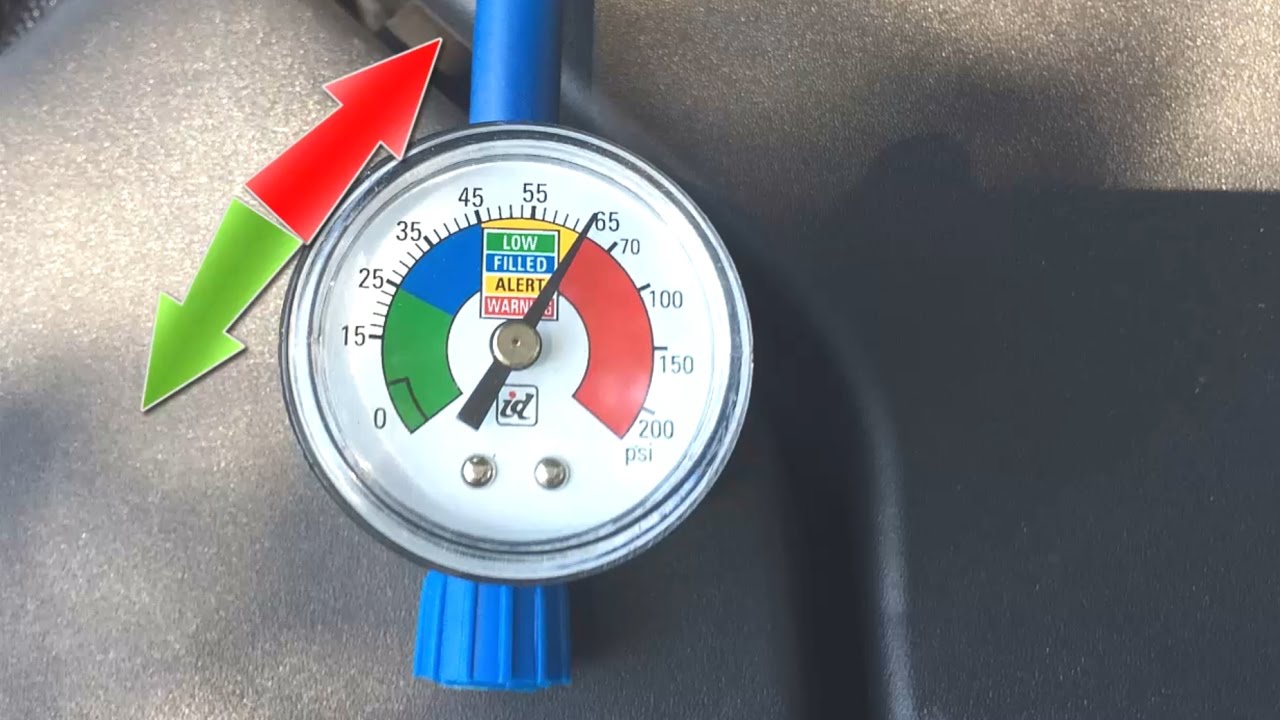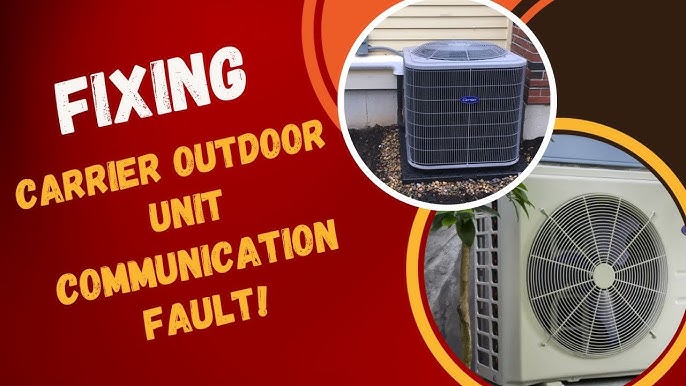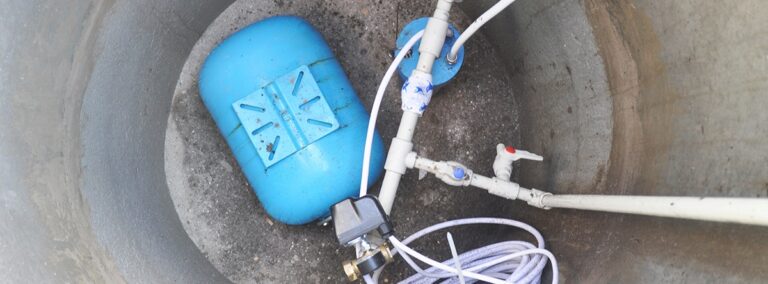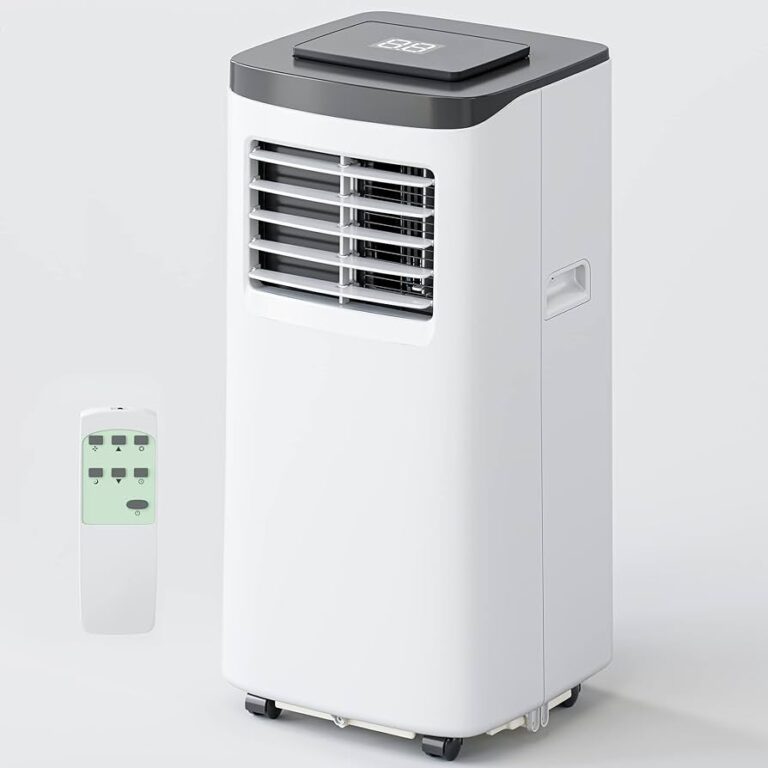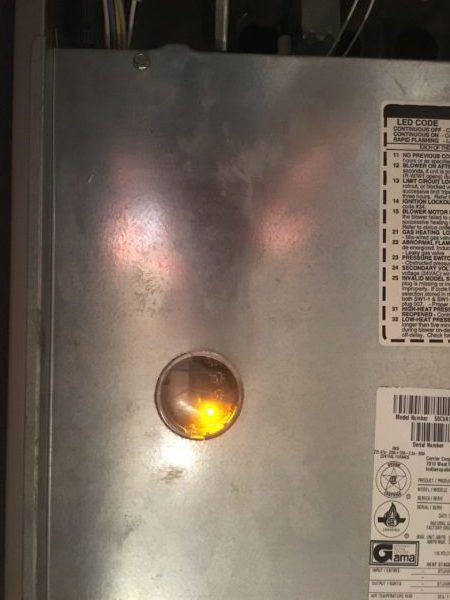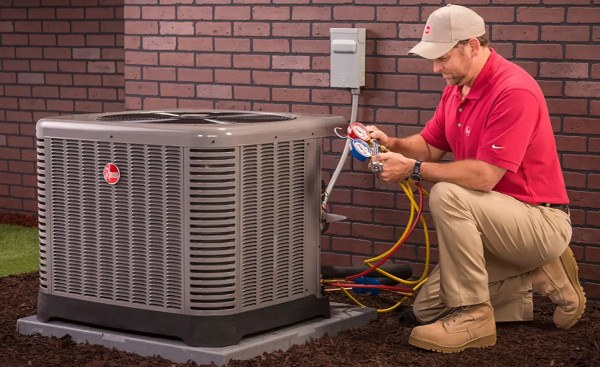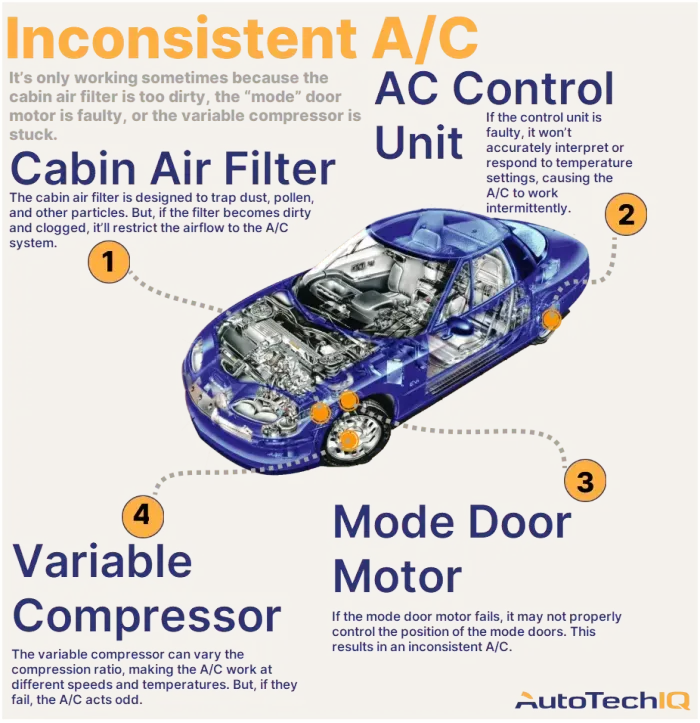Why is My Ac Gauge Going Up And down: Troubleshooting Fluctuating AC Pressure
The AC gauge may be going up and down due to a failing expansion valve, which can cause the refrigerant flow to be restricted or too unrestricted. This can lead to fluctuations in temperature.
Another possible cause is a leak in the AC system, even a small one, which can cause pressure fluctuations. AC gauge fluctuations can be a sign of various issues affecting the proper functioning of your air conditioning system. One common cause is a failing expansion valve, which controls the flow of refrigerant and can lead to temperature fluctuations.
Another potential culprit is a leak in the AC system, even a minor one, which can cause pressure fluctuations. Understanding the reasons behind your AC gauge going up and down is crucial for diagnosing and addressing the underlying issues. We will explore these potential causes and provide some tips on how to prevent or resolve them.
Understanding Ac Gauge Fluctuations
AC gauge fluctuations can occur due to various reasons, such as a failing expansion valve or restricted refrigerant flow. It could also be caused by issues with the AC controls, low refrigerant levels, or compressor problems. One common cause is a leak in the system, even a small one can cause fluctuations in AC pressure.
The significance of AC gauge readings:
- AC gauges are essential tools for diagnosing and troubleshooting air conditioning pressure issues.
- They provide valuable information about the high-side and low-side pressure of the AC system.
- By monitoring the gauge readings, you can identify if the system is functioning within the optimal range or if there are any abnormalities.
Role of AC gauges in troubleshooting AC pressure issues:
- AC gauges help identify whether there is a problem with the refrigerant level in the system.
- They can indicate if the system is overcharged or undercharged, which can lead to AC gauge fluctuations.
- AC gauges also help diagnose issues with the compressor, expansion valve, or other components of the AC system.
- By observing the pressure readings on the gauges, you can determine the cause of the fluctuations and take appropriate action.
Common causes of AC gauge fluctuations:
- Low refrigerant levels: Insufficient refrigerant can cause the AC gauge readings to fluctuate.
- Overcharged refrigerant: Too much refrigerant can also lead to unstable AC gauge readings.
- Faulty compressor: A malfunctioning compressor can cause irregular pressure fluctuations.
- Clogged expansion valve: If the expansion valve is blocked, it can disrupt the flow of refrigerant and result in gauge fluctuations.
- High or low ambient temperatures: Extreme temperatures can affect the pressure readings on the AC gauges.
- Contaminated or dirty refrigerant: Impurities in the refrigerant can interfere with the AC gauge readings.
Remember, understanding AC gauge fluctuations is crucial in diagnosing and resolving AC pressure issues. By monitoring the pressure readings on the gauges and considering the common causes mentioned above, you can pinpoint the root cause of the problem and take appropriate steps to fix it.
Potential Causes Of Fluctuating Ac Pressure
One potential cause of fluctuating AC pressure is a failing expansion valve, which removes pressure from the liquid refrigerant. Another possible reason is a leak in the system, even a small one, which can cause the pressure to fluctuate. It could also be due to problems with the heater or AC controls, low refrigerant levels, or compressor issues.
If you’ve noticed that the gauge on your AC system is going up and down, it could indicate an underlying issue that needs attention. Fluctuating AC pressure can be a sign of various potential causes. Here are a few possibilities to consider:
- Insufficient refrigerant levels: When the AC system is low on refrigerant, it can lead to pressure fluctuations. Low refrigerant levels can be caused by leaks in the system. It’s important to have the refrigerant levels checked and any leaks repaired to ensure the proper functioning of your AC system.
- Blocked or restricted expansion valve: The expansion valve plays a crucial role in the AC system by controlling the flow of refrigerant. If the valve becomes blocked or restricted, it can cause pressure fluctuations. This blockage can be caused by debris or sediment in the system. Cleaning or replacing the expansion valve may be necessary to resolve the issue.
- Faulty compressor or compressor clutch: The compressor is responsible for compressing the refrigerant and circulating it through the AC system. If the compressor or its clutch is malfunctioning, it can result in pressure fluctuations. A faulty compressor may need to be repaired or replaced to restore proper AC operation.
- Air or non-condensibles in the system: Air or non-condensibles, such as moisture or air bubbles, can find their way into the AC system. These can disrupt the refrigerant flow and cause pressure fluctuations. Purging the system of any air or non-condensibles and ensuring proper evacuation can help stabilize the AC pressure.
- Malfunctioning AC controls or sensors: Issues with the AC controls or sensors can also lead to pressure fluctuations. Faulty temperature sensors or control modules may cause the AC system to cycle on and off erratically, resulting in pressure variations. Checking and replacing any malfunctioning components can help resolve this issue.
Taking into account the potential causes mentioned above, it’s important to promptly identify and address the underlying problem causing the fluctuating AC pressure. Seeking assistance from a qualified HVAC technician can help diagnose the issue accurately and ensure the appropriate repairs or maintenance are performed.
Insufficient Refrigerant Levels
Insufficient refrigerant levels can cause the AC gauge to go up and down. This may be due to a leak in the system, causing pressure fluctuations.
Impact Of Low Refrigerant Levels On Ac Pressure:
- Low levels of refrigerant in the AC system can have a significant impact on the pressure readings of the AC gauge. It’s important to understand how this impacts the performance of your AC system.
Signs Of Low Refrigerant Levels:
- In order to determine if your AC system has low refrigerant levels, look out for these common signs:
- Reduced cooling performance: If you notice that your AC system is not cooling as effectively as it used to, it could be due to low refrigerant levels.
- AC system cycling on and off frequently: Low refrigerant levels can cause your AC system to short cycle, meaning it turns on and off more frequently than usual.
- Higher energy bills: When refrigerant levels are low, your AC system has to work harder to maintain the desired temperature, resulting in increased energy consumption and higher energy bills.
- Ice formation: Another sign of low refrigerant levels is the formation of ice on the evaporator coils or refrigerant lines.
Steps To Diagnose And Resolve Low Refrigerant Issues:
- If you suspect that your AC system has low refrigerant levels, follow these steps to diagnose and resolve the issue:
- Conduct a visual inspection: Check for any visible signs of refrigerant leaks, such as oil stains or refrigerant odor around the AC unit.
- Perform pressure tests: Use an AC gauge to measure the pressure levels in the system. If the pressure readings are below the manufacturer’s specifications, it indicates low refrigerant levels.
- Locate and repair the leaks: If you find any refrigerant leaks during the visual inspection, it’s important to locate and repair them. This may involve replacing damaged components or sealing the leaks.
- Recharge the refrigerant: Once the leaks are fixed, the next step is to recharge the refrigerant to the recommended levels. This should be done by a professional HVAC technician.
- Test the AC system: After recharging the refrigerant, test the AC system to ensure that it is now functioning properly and providing optimal cooling performance.
By understanding the impact of low refrigerant levels on AC pressure, recognizing the signs of low refrigerant levels, and knowing the steps to diagnose and resolve the issue, you can ensure that your AC system operates efficiently and provides optimal cooling performance.
If you are unsure about any aspect of this process, it is recommended to seek the assistance of a professional HVAC technician.
Blocked Or Restricted Expansion Valve
If your AC gauge is fluctuating up and down, it could be due to a blocked or restricted expansion valve. The valve’s function is to remove pressure from liquid refrigerant, allowing it to expand from a liquid to a vapor state in the evaporator.
If the valve is blocked, it can restrict the refrigerant flow, causing the gauge to fluctuate.
How A Blocked Expansion Valve Affects Ac Pressure:
- When the expansion valve is blocked, it can cause irregular pressure readings on the AC gauge.
- The blocked expansion valve restricts the flow of refrigerant, leading to improper cooling and fluctuating pressure levels.
- This can result in the AC gauge going up and down, causing discomfort and difficulty in maintaining a consistent temperature in the vehicle.
Symptoms Of A Blocked Expansion Valve:
- Fluctuating AC pressure: One of the first signs of a blocked expansion valve is the pressure on the AC gauge going up and down inconsistently.
- Inconsistent cooling: The restricted flow of refrigerant can cause uneven cooling inside the vehicle. The air may blow cold one moment and warm the next, making it difficult to maintain a comfortable temperature.
- Increased energy consumption: When the expansion valve is blocked, the AC system has to work harder to cool the air, resulting in higher energy consumption and potentially higher electricity bills.
- Ice buildup on evaporator coil: A blocked expansion valve can lead to excess moisture in the system, causing ice to form on the evaporator coil. This can further reduce the efficiency of the AC system and cause more fluctuations in pressure.
Steps To Diagnose And Clean Or Replace The Expansion Valve:
If you suspect a blocked expansion valve in your AC system, here are steps to diagnose and address the issue:
- Visual inspection: Check for any obvious signs of blockage or damage to the expansion valve.
- Pressure readings: Use an AC gauge to measure the pressure on both the low and high-pressure sides of the system. The readings can help identify any irregularities.
- Refrigerant level check: Ensure that the refrigerant level is within the recommended range. Low refrigerant levels can also cause pressure fluctuations.
- Cleaning the expansion valve: If the expansion valve is not severely damaged, it may be possible to clean it by removing any blockages or debris. This can be done using specialized AC cleaning solutions or with the help of a professional.
- Replacement: If the expansion valve is severely damaged or unable to be cleaned, it will need to be replaced. Consult a professional mechanic or AC technician to determine the correct replacement part for your vehicle.
- System flush: To ensure optimal performance, it is recommended to flush the AC system to remove any contaminants or debris before installing a new expansion valve.
- Recharging the system: Once the expansion valve is cleaned or replaced, the AC system will need to be recharged with the appropriate amount of refrigerant to restore proper functionality. This should be done by a qualified professional.
Remember, a blocked or restricted expansion valve can affect the performance and efficiency of your vehicle’s AC system. If you notice any symptoms or suspect a problem, it’s best to consult a professional technician for diagnosis and repairs.
Faulty Compressor Or Compressor Clutch
If your AC gauge is fluctuating, it could be due to a faulty compressor or compressor clutch. This can cause the pressure in the system to go up and down, indicating a potential issue with the AC system. It’s important to have it checked and repaired to ensure optimal performance.
Role Of The Compressor In Ac Pressure Regulation
- The compressor in an AC system plays a crucial role in regulating the pressure of the refrigerant.
- It is responsible for compressing the refrigerant, raising its temperature and pressure.
- The compressed refrigerant then flows through the system, releasing heat and cooling down before returning to the compressor.
- In this process, the compressor maintains a steady flow of refrigerant, ensuring optimal cooling performance.
Indications Of A Faulty Compressor Or Compressor Clutch
- Fluctuating AC gauges can be a sign of a faulty compressor or compressor clutch.
- A faulty compressor may fail to properly compress the refrigerant, resulting in inconsistent pressure levels.
- On the other hand, a faulty compressor clutch may intermittently engage and disengage, causing the gauge to fluctuate.
- Other indications of a faulty compressor or compressor clutch include unusual noises, such as grinding or clicking sounds, and reduced cooling performance.
Troubleshooting Steps For Compressor-Related Issues
- If you suspect a faulty compressor or compressor clutch, it is important to troubleshoot the issue to determine the exact cause. Here are some steps to follow:
- Check the compressor clutch: Inspect the compressor clutch to ensure it is engaging and disengaging properly. If the clutch is not functioning correctly, it may need to be replaced.
- Check the compressor wiring: Inspect the wiring connected to the compressor for any signs of damage or loose connections. Faulty wiring can result in compressor issues and should be repaired or replaced if necessary.
- Check for refrigerant leaks: Low refrigerant levels can affect the performance of the compressor. Use a leak detection kit to check for any leaks in the AC system, and repair them accordingly.
- Test the compressor: Use a multimeter to test the electrical continuity of the compressor. If the reading is outside the recommended range, it may indicate a fault in the compressor.
- Consult a professional: If you are unable to diagnose or resolve the compressor-related issues on your own, it is best to consult a professional HVAC technician. They have the expertise and tools to accurately diagnose and repair compressor problems.
Remember, addressing compressor-related issues promptly can help prevent further damage and ensure that your AC system functions optimally.
Air Or Non-Condensibles In The System
If you’re experiencing your AC gauge going up and down, it could be due to the presence of air or non-condensibles in the system. Even a small leak can cause pressure fluctuations, leading to this issue. Consider checking for leaks and addressing them to resolve the problem.
Effects Of Air Or Non-Condensibles On Ac Pressure:
- Increase in AC gauge pressure
- Fluctuations in AC gauge readings
- Inefficient cooling performance
- Reduced AC system efficiency
- Potential damage to AC components
Signs Of Air Or Non-Condensibles In The System:
- Fluctuating AC pressure readings
- Inconsistent cooling performance
- Unusual sounds coming from the AC system
- Longer cooling cycles
- AC system cycling on and off frequently
Methods To Remove Air Or Non-Condensibles From The System:
- Purge the AC system using a vacuum pump to evacuate air and moisture
- Utilize refrigerant recovery equipment to remove non-condensibles
- Perform a proper refrigerant recharge to ensure optimal levels
- Check for leaks and repair them to prevent air or non-condensible ingress
- Properly evacuate and charge the AC system to eliminate air pockets
Remember, it is important to address the presence of air or non-condensibles in the AC system to ensure its optimal performance and prevent potential damage.
Malfunctioning Ac Controls Or Sensors
If your AC gauge is going up and down, one possible reason could be malfunctioning AC controls or sensors. This can cause pressure fluctuations in the system, resulting in inconsistent cooling performance.
Impact Of Faulty Ac Controls Or Sensors On Ac Pressure:
- Malfunctioning AC controls or sensors can cause erratic fluctuations in AC pressure.
- The pressure may go up and down rapidly, affecting the overall performance of the AC system.
- When the controls or sensors fail to accurately measure the temperature or pressure, it can lead to improper functioning of the AC system.
- The AC system may struggle to maintain a stable and comfortable temperature inside the vehicle.
- Faulty controls or sensors can also disrupt the flow of refrigerant, leading to imbalanced pressure levels.
Symptoms Of Malfunctioning Ac Controls Or Sensors:
- Inconsistent cooling: If your AC system is not blowing cold air consistently, it could be a sign of malfunctioning controls or sensors.
- Temperature fluctuations: You may experience sudden changes in temperature inside the vehicle, with the AC going from cold to warm or vice versa.
- Unresponsive controls: If the AC controls do not respond or behave erratically, it could indicate a problem with the controls or sensors.
- Decreased airflow: Malfunctioning AC controls or sensors may result in reduced airflow from the vents.
- Strange noises: Faulty controls or sensors can sometimes cause unusual clicking or buzzing noises coming from the AC system.
How To Diagnose And Fix Ac Control Or Sensor Issues:
- Consult a professional: If you suspect an issue with your AC controls or sensors, it is recommended to seek the assistance of a qualified technician.
- Check for error codes: Modern vehicles are equipped with onboard diagnostic systems that can display error codes related to AC controls or sensors. Use a diagnostic tool to retrieve these codes.
- Inspect wiring and connections: Loose or damaged wiring can cause problems with AC controls or sensors. Carefully inspect the wiring and connections for any signs of damage or disconnection.
- Test the controls and sensors: Utilize a multimeter or specialized AC testing equipment to check the functionality of the controls and sensors.
- Replace faulty components: If any controls or sensors are determined to be faulty, they should be replaced with genuine OEM parts. Always follow the manufacturer’s guidelines and recommendations for replacement.
- Perform a refrigerant recharge: In some cases, fluctuating AC pressure may be a result of low refrigerant levels. Consult a professional to properly recharge the system and ensure the correct pressure levels.
Remember, if you encounter any difficulties in diagnosing or fixing AC control or sensor issues, it is best to consult with a qualified technician or HVAC professional.
Troubleshooting Fluctuating Ac Pressure
If you’re wondering why your AC gauge is fluctuating, one possible reason is a leak in the system. Even a small leak can cause pressure to fluctuate, leading to inconsistent readings on the gauge. Ensure there are no leaks and consider getting it repaired for stable AC performance.
Step-By-Step Guide To Troubleshooting Ac Pressure Fluctuations:
- Check the air filter: A clogged air filter can cause AC issues, including pressure fluctuations. Make sure to clean or replace the air filter if it is dirty or blocked.
- Inspect the condenser unit: Examine the outdoor condenser unit for any debris or obstructions. Clear away any leaves, grass, or dirt that may be blocking airflow and impeding the proper functioning of the unit.
- Check the refrigerant levels: Low refrigerant levels can cause AC pressure fluctuations. Use an AC gauge to measure the refrigerant levels and ensure they are within the recommended range. If the refrigerant is low, there may be a leak that needs to be addressed by a professional.
- Examine the condenser fan: The condenser fan plays a crucial role in cooling the refrigerant. Check if the fan is spinning properly and not obstructed. If the fan is not working correctly, it may need to be repaired or replaced.
- Check the thermostat settings: Incorrect thermostat settings can cause the AC to cycle on and off, resulting in pressure fluctuations. Ensure that the thermostat is set to the desired temperature and mode (cooling).
Additional Tips For Effective Troubleshooting:
- Clean the evaporator coil: A dirty evaporator coil can disrupt the heat transfer process and lead to AC pressure fluctuations. Clean the coil regularly to keep it free from dirt and debris.
- Test the compressor: The compressor is responsible for compressing the refrigerant and maintaining the AC pressure. If the compressor is faulty, it can cause pressure fluctuations. A professional can assess and repair any compressor issues.
- Inspect the expansion valve: The expansion valve regulates the flow of refrigerant to the evaporator coil. If the valve is blocked or malfunctioning, it can cause pressure fluctuations. A professional technician can diagnose and fix any issues with the expansion valve.
- Check for refrigerant leaks: Leaks in the AC system can lead to inconsistent pressure levels. Look for any signs of refrigerant leaks, such as oil stains or hissing sounds, and have them repaired by a professional.
- Ensure proper insulation: Insufficient insulation in the ductwork can cause temperature variations and pressure fluctuations. Make sure the ducts are properly sealed and insulated to maintain consistent AC performance.
When To Seek Professional Help:
- If you have performed the troubleshooting steps mentioned above and are still experiencing AC pressure fluctuations, it is advisable to seek professional help. HVAC technicians have the expertise and tools to diagnose and resolve complex AC issues.
- Additionally, if you are unsure about performing any DIY AC repairs or lack the necessary knowledge and experience, it is best to leave it to the professionals. Attempting repairs without proper expertise can lead to further damage or safety hazards.
Remember, regular AC maintenance and professional inspections can help prevent and address AC pressure fluctuations, ensuring efficient cooling performance.
Preventing Ac Gauge Fluctuations
If you’re wondering why your AC gauge is going up and down, it could be due to a leak in the system or issues with the expansion valve. These factors can cause pressure fluctuations, leading to temperature inconsistencies in your car’s AC.
Consider getting your AC system checked by a professional to diagnose and fix the issue.
Regular maintenance and inspections:
- Schedule regular maintenance for your AC system to detect any potential issues before they escalate.
- Hire a professional HVAC technician to conduct routine inspections and ensure all components are in good working order.
- Regularly clean or replace air filters to prevent clogs and airflow restrictions that can lead to gauge fluctuations.
- Keep the outdoor unit clear of debris, such as leaves and dirt, to maintain proper air circulation.
- Check for any leaks in the refrigerant lines and repair them promptly to prevent pressure imbalances.
- Lubricate the moving parts of your AC system to reduce friction and ensure smooth operation.
Best practices for maintaining proper AC pressure:
- Maintain the correct refrigerant charge by following manufacturer guidelines and recommendations.
- Avoid overcharging or undercharging the refrigerant, as it can lead to gauge fluctuations and system inefficiencies.
- Monitor the AC system’s performance and keep an eye on the gauge readings to spot any irregularities.
- Ensure that the condenser and evaporator coils are clean and free of dust, dirt, and debris to promote efficient heat exchange.
- Check and adjust the thermostat settings to prevent temperature swings that can cause gauge fluctuations.
- Invest in a programmable thermostat that allows you to regulate and maintain stable room temperatures.
Tips for preventing AC gauge fluctuations:
- Insulate your home properly to minimize heat gain and loss, reducing the strain on your AC system.
- Keep the blinds or curtains closed during the hottest parts of the day to block out sunlight and prevent excessive temperature changes.
- Use ceiling fans or portable fans to enhance air circulation and distribute cool air more effectively.
- Avoid using heat-generating appliances, such as ovens and dryers, during the peak hours of the day to prevent unnecessary strain on your AC system.
- Consider installing shade structures or planting trees around your outdoor unit to provide additional protection from direct sunlight.
- Educate yourself about your AC system and its components so that you can quickly identify any potential issues and take appropriate action.
By adhering to these preventative measures and practicing regular maintenance, you can reduce the chances of your AC gauge fluctuating and ensure optimal performance and comfort in your home or office. Remember to consult with a professional HVAC technician for any complex issues or if you are unable to resolve gauge fluctuations on your own.

Credit: www.jdpower.com
Frequently Asked Questions On Why Is My Ac Gauge Going Up And Down
Why Is My Ac Fluctuating In My Car?
If your car AC is fluctuating, it could be due to a failing expansion valve. This valve controls the flow of refrigerant, and if blocked or unrestricted, can cause temperature fluctuations in your AC.
Why Does My Ac Keep Going High And Low?
Your AC may be going high and low due to various reasons, such as issues with the controls, low refrigerant levels, or compressor problems. It could also be a sign of an air-conditioning problem. One common reason for AC pressure fluctuation is a leak in the system.
Checking and addressing these potential issues can help resolve the problem.
How Do I Stop My Ac From Short Cycling?
To stop your AC from short cycling, follow these steps: 1. Check your air filter. 2. Verify thermostat placement. 3. Ensure proper refrigerant levels. 4. Replace the low-pressure control switch if needed. 5. Inspect the compressor.
Why Does My Ac Low Side Fluctuate Up And Down?
The fluctuation in your AC low side could be due to a failing expansion valve, restricted refrigerant flow, or other issues.
Conclusion
The fluctuation of the AC gauge can be caused by several factors, one of which is a leak in the system. Even a small leak can cause the pressure to go up and down. Another possibility is a failing expansion valve, which can cause the AC to flip-flop between hot and cold.
Additionally, problems with the heater or AC controls, low refrigerant levels, and compressor issues can also lead to a fluctuating AC gauge. To prevent this issue, it is important to regularly check and maintain your AC system. Checking the air filter, thermostat placement, refrigerant levels, and the compressor can help identify and resolve any potential problems.
It is also advisable to seek professional help if you are unsure how to address the issue. Overall, understanding the reasons behind the AC gauge fluctuation and taking proper measures to maintain the system can ensure a more consistent and efficient cooling experience.
So, don’t overlook the importance of regular AC system maintenance to avoid unnecessary inconvenience and discomfort.

